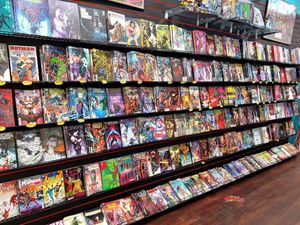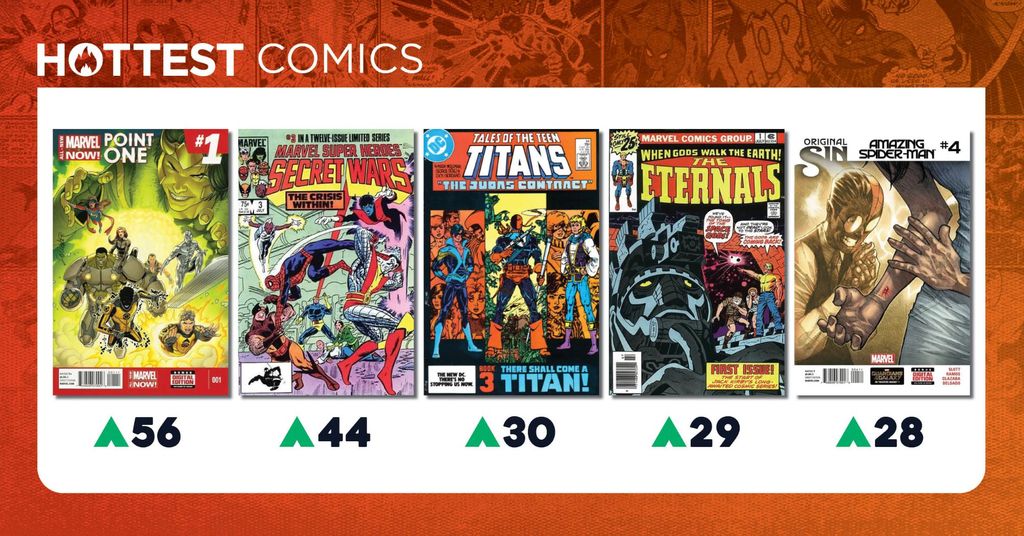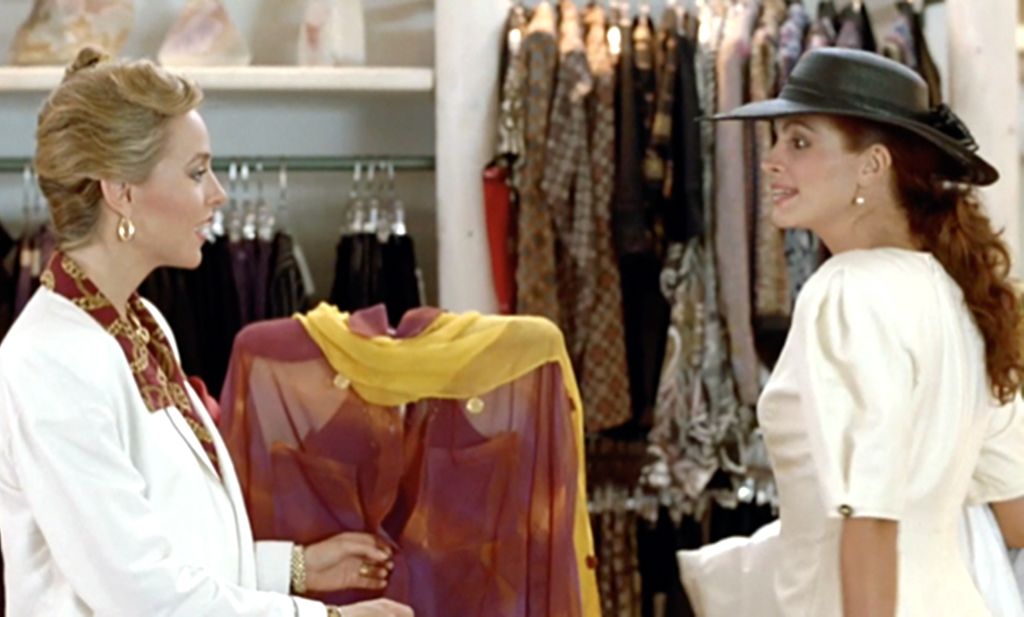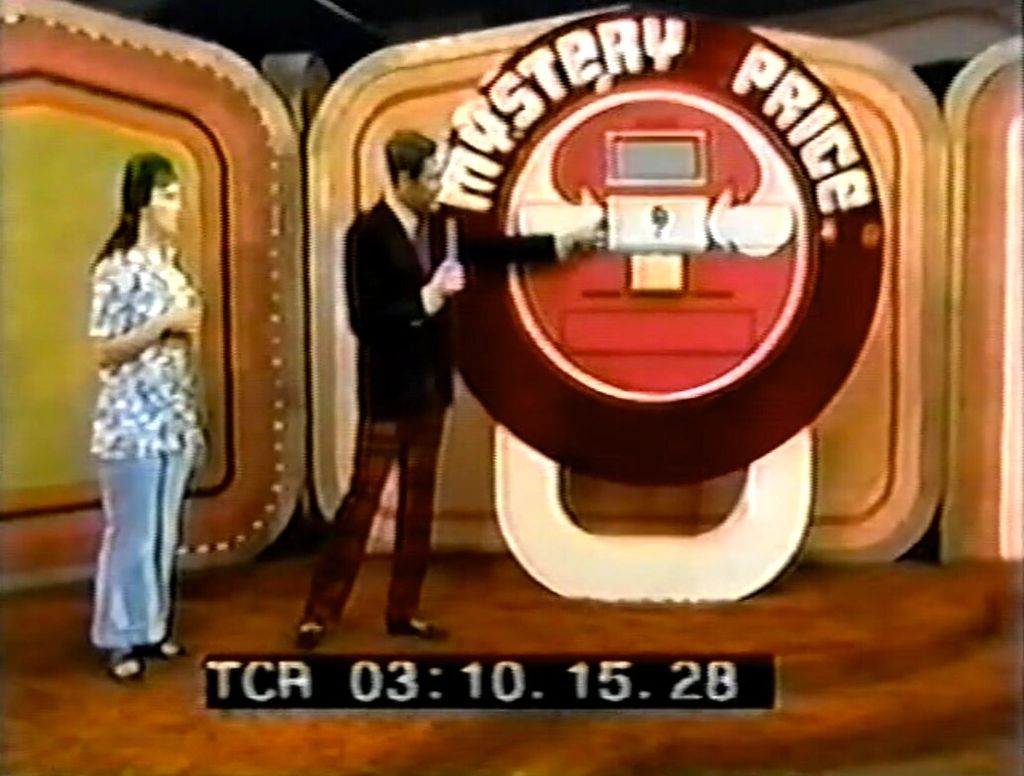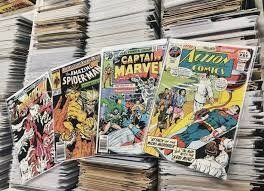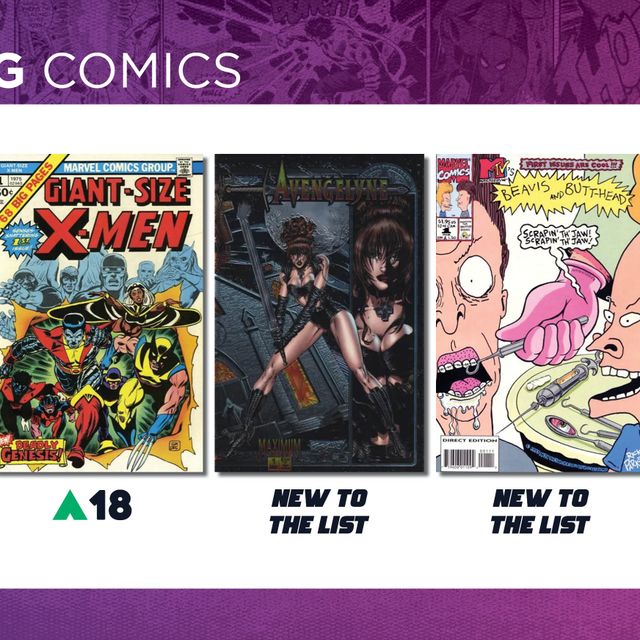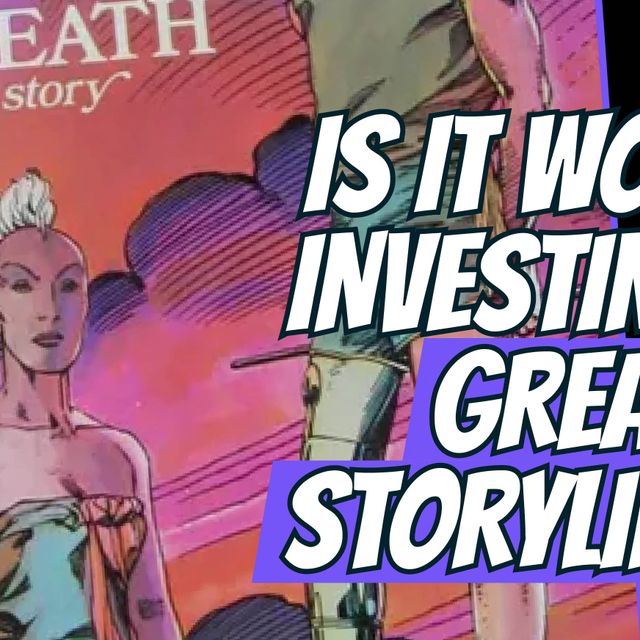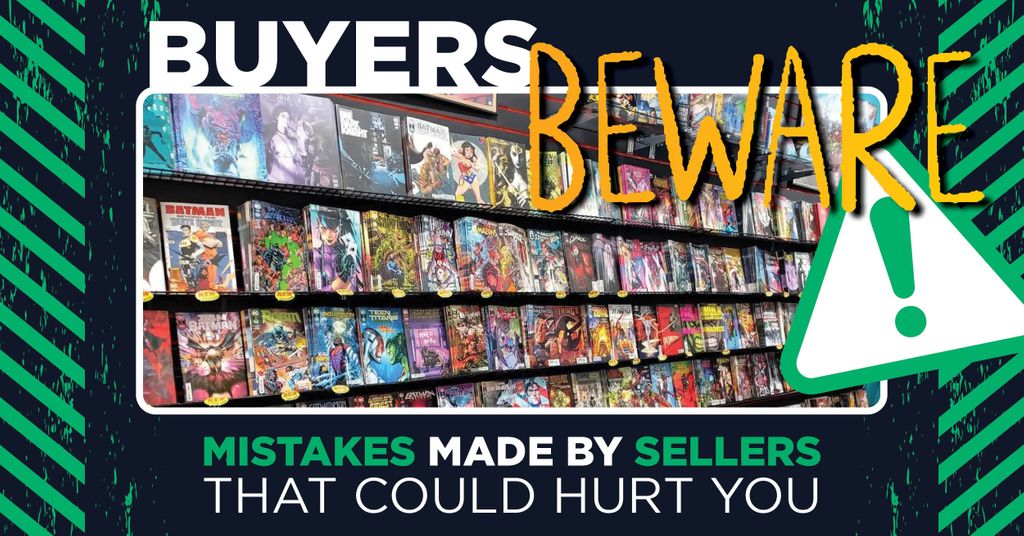
1. McDonald's does not negotiate the price of a Big Mac
One complaint consumers state now is that comic book stores and online sellers will not negotiate prices for back issues. Comic books are dropping in value. No one wants to see their books lose value as they sit on the shelf. Sellers then get mad when customers try to "take advantage" of the situation by trying to negotiate for a lower price on their goods.
The cultural norm of comic books has always been for negotiations to occur between owners and customers. This is one of the reasons a truly national comic book chain does not exist. GoCollect has a price guide, but that is only a reference guide that people can use to start the negotiations. Comic books and negotiations go together like peanut butter and jelly. A seller that does not want to negotiate may find they have a very small pool of buyers to purchase their goods.
Buyer Advice
Do not abandon a seller that is firm on their prices. It is possible that the owner has already reduced the price to the rock bottom offer he will accept. In contrast, owners must understand that buyers want a deal. A deal is part of the enjoyment of collecting and investing in comic books.
If buyers feel they are getting a deal even if the seller is not reducing their price, then buy the book. The most important thing to remember is that there are plenty of other sellers for that book that may offer a better price. Comics are meant to be enjoyed, so if the buying process is not pleasant then walk away. Everyone wants a deal. If you feel you got one, then buy the book!
2. Let me see if those issues are hot on GoCollect
Owners must show pride in their stores. Hard work is an essential part of running a business. Customers will come in and expect that the owner probably knows more about their books than the consumer. There is nothing worse for a customer than to spend their valuable time looking through back issue bins to make their selections only to find the prices are not marked or that the prices listed are not accurate.
Some stores try to make it worse, though, because not only will they not negotiate a price, mentioned in the previous section, but then they try to "negotiate" a price to their own advantage if a book becomes hot and they forgot to mark it up. This way, their prices never favor the buyer.
Consumers visit comic book stores not only for purchases but also for education. Buyers assume that the owner is up-to-date on current market conditions. A store owner who does not take the time to keep accurate prices because of time and financial constraints demonstrates that they also may be cutting the corners in other ways. An owner of the store should know their merchandise and not be caught off guard with a Hood #1 sitting in the dollar bin. An LCS would want their surgeon to be up to date on current surgical trends, so why would a customer not expect the owner to be as up-to-date on their stock?
Buyer Advice

Not only should buyers ask if prices are negotiable, but they should also ask if the prices listed are accurate. Time is money. You can spend hours looking for back issues only to find that every one is priced well beyond the amount one is willing to pay and the owner is standing firm on those prices. An owner who watches a customer pick comics without telling them of their pricing policy is a sign of a neglectful owner. Finding a very hot item in the dollar bins that the owner will not sell because of a large price increase is also a red flag to cause concern.
One of the reasons CGC and other third-party grading companies came into being is because of owners who did not put the time in to accurately grade a book. An owner who does not know what stock they have because of time constraints may also be an indication that they cut corners on grading their books. Many stories are told of LCSes that only grade covers of Bronze Age books and miss out on clipped coupons.
Everyone makes mistakes, but sometimes these omissions are signs of laziness. Buyers will ultimately pay the price when they find the book they purchased has flaws that the owner did not have the time to find.
3. Anybody home?
The first thing many people encounter when they enter a restaurant is a hostess. They acknowledge the customer's presence and begin the dining experience. Sadly, the first thing many customers experience when entering a comic book shop or buying online is silence. Many buyers retell the classic tale of the clerk reading the newest comic book at the counter or engaged in an in-depth conversation with their friend on their cellphone.
Online sellers tell of numerous attempts to engage with an online seller, to no avail. Times are tough and any customer should be appreciated. Rather than ignoring them, an owner should ask them how they can be of assistance. Sadly, this is not what usually happens at bad stores.
Recently one person related the story at a con of how they went into an LCS in metro Detroit to purchase some comics for themselves and their child that had been unavailable to them at their local LCS. They chose the store because it was close to the airport and two post offices where they could mail their purchases home. The individual went into the store to spend a small amount for them, roughly $1,000! Instead of the clerk offering to help this new customer, the clerk engaged in a conversation about a gaming event at the store. The customer roamed the store and waited for an opportunity to approach the clerk when they were not talking about the event, to no success.
At no time did the clerk excuse themselves to see if the customer needed any help. The customer felt ignored and left the store. The customer eventually spent that sum and more in another state at a store that appreciated him. It takes money to generate a good lead and here one walks in with no capital expenditure on the part of the seller and yet the potential buyers were allowed to leave. Online sellers and LCS never know that buyer may be a "whale customer".
Buyer Advice
Customers are the most important person to a seller. A good seller can provide an education to even the most experienced comic book hobbyist. That education is something one cannot get from an online purchase. If an owner does not treat this as an opportunity and engage with customers, then maybe you should find another seller.
Online retailers who do not respond to emails might also be a bad sign. Things may go sideways. A purchaser wants to know they can get ahold of a seller to assist in the problem. A retailer that does not respond to easy issues may be even more reluctant to get involved when things go bad. This is not something you want when you are buying an expensive book and your only contact is by email.
4. I am not a professional grader but...
No one is a professional grader (unless you work at one of the third-party grading companies). The issue is, that can become a problem when selling books. The condition of a book is essential in calculating the FMV of a book. The problem is that many LCS and online sellers try to play a little game to protect themselves, which demonstrates a lack of planning on their part.
Many sellers state either in-person or on an online listing that they are not professional graders. This is an attempt at an indemnification clause for the grade. The statement implies that because they are not an official grader, the seller lacks the fundamental knowledge to affix an accurate grade for a book. The question many savvy buyers then ask is if the seller could not grade a book then how did they come to the listed price? The seller had to at least approximate a grade or else all books would be listed for the NM FMV price. A seller may not be able to grade a book, but that does not mean they should not be able to tell the buyer how they came to the listed price.
Buyer Advice
If a seller does not reveal how they came to the price, then inspect the book closely. This is where a visit to the LCS or a comic con trumps buying online. Many online listings may omit a glaring defect in the book. Ask for many pictures, including all the pages. If not, then the buyer only becomes aware of these flaws after the purchase. The seller then must negotiate with the seller's platform; companies like Paypal, or the seller themselves for a remedy. In-person, you can just walk away from a bad deal before making it.
5. In search of...
Online sellers want to avoid fees. Buyers also want to avoid fees and taxes. Saving some money has created Facebook sales. A seller puts a listing up and buyers either bid or purchase the book outright. Payment is wired and the book is delivered to the buyer. That is the way it is supposed to go.
Many buyers are now dealing with sellers that will not ship their issues. Or, when the item does ship it is not in the condition shown. This can even occur with graded books where one book with a 9.4 is sent that does not match the 9.4 identification numbers on the listing. This book may have Newton rings that may have made it less desirable for the buyer's needs. In contrast, sellers complain about how buyers bid on books but then never complete the sales process. Distrust then runs rampant in these groups. Online posses can be created where everyone chimes in on the transactions. It can become quite nasty.
Facebook posts are dedicated to complaints from buyers and sellers involved with these types of online transactions. Be on the lookout (BOLOs) are put out for sellers and buyers who the community believes have violated the cultural norms for these types of sales. Sometimes slights such as a one-day delay illicit drastic actions on the part of the perceived victims. Other posts document many bad acts that would scare away most consumers. Consider it the wild west of the comic book marketplace where there is no law enforcement and vigilante justice is quite common. Basically, buyers/sellers are on their own when things go wrong.
Buyer Advice
eBay has customer reviews for sellers to evaluate. Heritage and Goldin have built up a reputation among collectors. Facebook buyers should look into who they are dealing with before buying an item from them. The same is true for sellers. Both sides should eliminate any potential cause for concern before it becomes an issue. Review things like shipment packaging as well. Research the buyer/seller and ask questions if this is a route you want to pursue.
This means more than asking one person online. The person you ask may be a friend of the seller or buyer. In addition, one transaction should not make you feel too comfortable. Never lose your vigilance. Buyers should also be respectful. Life happens. A seller may have had a death in the family or another issue that may require them to send the issue a day late. Destroying a seller's reputation may seem the right thing to do, but it can hurt the buyer's image as well. Bad sellers can lose sales, but a bad buyer's image is as troublesome and may preclude that person from some purchases.
Conclusion
Buyers must remember that this is a hobby for collectors and a business to investors. Any part of the sales process that impacts the reason for purchasing the comic becomes a negative event. Collectors that chase a sought-after book only to have the Facebook seller disappear can actually be emotionally draining. Time is money to an investor who scours the bins of an LCS only to have the owner negate that time by imparting new prices on the books that make their purchase non-advantageous.
Times are difficult and people are looking to cut corners to save money. Comic book retailers that look to cut corners for short-term gains may be exposing themselves to long-term pain. Sellers talk online. When customers are hard to come by, making the buying experience problematic is not a good plan. A quick profit grab can cost people future sales and now is not the time to risk any sales. The market has changed and now buyers have all the power. As a result, buyers should always remember that sometimes the best deal is no deal at all.
"Take care of your reputation. It's your most valuable asset."
H. Jackson Brown Jr.
Want more investment advice?
-
INFLATION’S IMPACT ON COMIC COLLECTING AND INVESTING
-
WHY COMIC BOOK RARITY MATTERS TO COLLECTORS AND INVESTORS
-
WHY ARE CERTAIN COMIC BOOKS VALUABLE TO COLLECTORS & INVESTORS?

